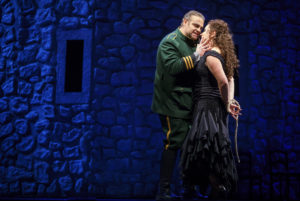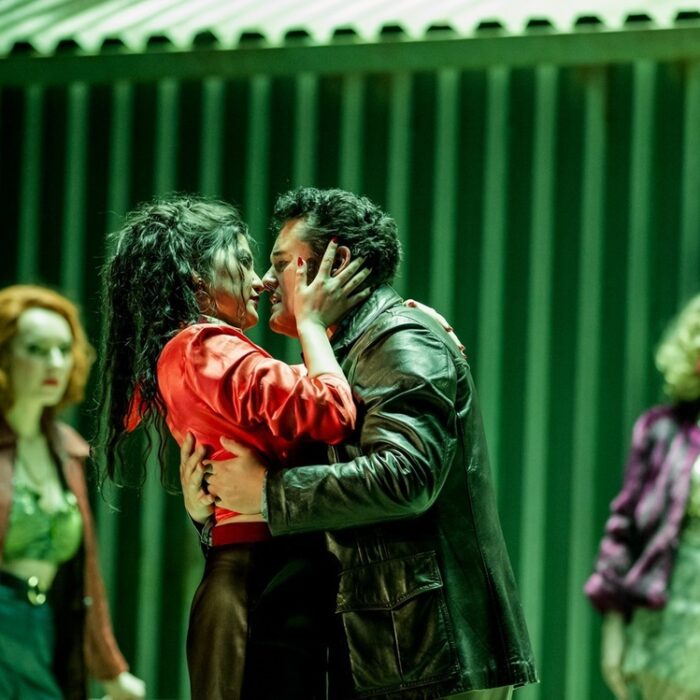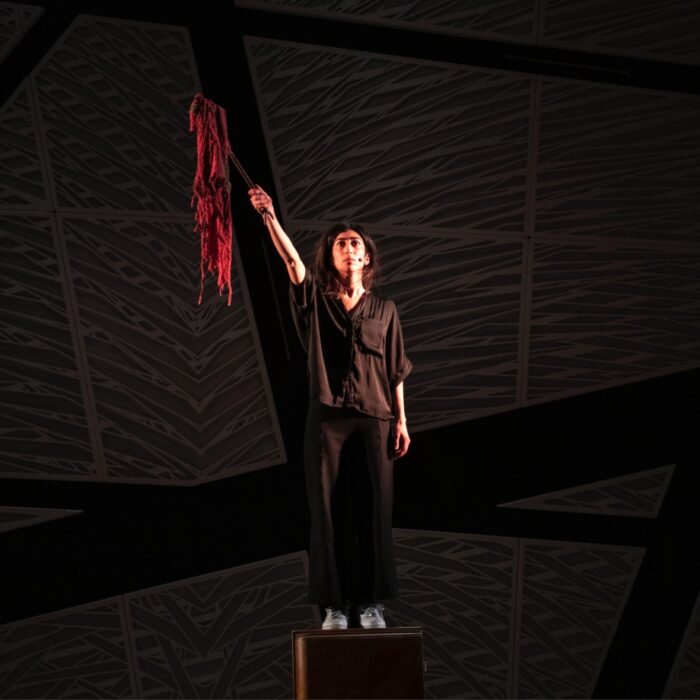
Lyric Opera Of Chicago 2016-17 Review – ‘Carmen:’ Dramatic Depth & Power Is Lacking Despite Vocal Finesse Throughout the Cast
By James Monroe Števkoizet’sThis review is in reference to the performance on Friday, March 3, 2017.
With Bizet’s ever-famous score full of ear tingling music, catchy tunes, and drama-packed scenes, an evening of Carmen is a guaranteed great night at the opera, making this the perfect way for first-timers to first dip their toes into the operatic repertory.
The Leads
Lyric Opera’s production was no different, whose first cast featured Ekaterina Gubanova as the title role temptress and Joseph Calleja as Don José, one of her many habitual short affairs. This is Gubanova’s debut in the role, and her voice is everything one expects, smooth and dark with a flair for the dramatic. What was lost, however, was her comfort of really delving into the sexuality of the character, where her flirtatiousness and independence were never convincingly portrayed particularly in her “Habanera” and “Seguidille” through her body language. Her strongest acting and singing came in the Act two duet prior to Don José’s famous aria “La Fleur que tu m’avais jetée.” Here she became visibly angry, particularly when Don José is called off by the bugle call.
As Don Jose, Calleja, who falls victim to Carmen’s advances, executed the score with his customary fluid legato. His brightest moments being the ease of his high notes, particularly at the climax of “La fleur que tu m’avais jetée,” where he turned around upstage to Carmen in one of the most affecting moments. The character, though, was wanting of a more passionate performance on both ends of the emotional spectrum, from passion to anger particularly in the final scene of the opera.
The two notable supporting roles portrayed by Christian Van Horn and Eleonora Buratto, were the night’s strongest performances. Buratto, while only featured twice in this opera, offered a dynamic and dramatic “Je dis que rien ne m’epouvante” all while portraying an authentic and interesting Micaela with every syllable. Van Horn, who portrayed the arrogant Escamillo, showcased his rich baritone ringing over the orchestra with ease, tossing around his bravura with all eyes on him during the famous Toreador song “Votre toast, je peux vous le rendre.”
The Production
It’s important to note, that this production was done with the recitative spoken instead of sung, the way Bizet’s originally notated it. This required mic-ing of the singers, but the transitions between spoken and sung words were imperceptible, which is a great improvement in past years with the growing amount of sound enhancement for shows due to the musical theater initiative of the house. The dialogue, beautifully spoken, lent a refreshing respite for the ears while giving the singers more freedom to explore their characters.
In true Rob Ashford style, the show was sprinkled heavily with dance, a great addition to any opera but especially required for an opera as lively as Carmen. Beginning with the overture a shirtless male donning a bull headpiece stands as the personification of Bizet’s famous motif that appears throughout the acts signaling Carmen’s imminent doom. The ballet packed the most punch at the top of Act 4, where the women in black dresses with long trains reveal the men hiding underneath and continuing on with what is always innovative Ashford choreography.
Set designer David Rockwell and costume designer Julie Weiss updated the atmosphere with elements suggesting 1930’s Spain. The tavern scene accurately portrays the more modern time period with men in pleated, high-waisted pants with vests and ladies in below-the-knee dresses, though one questions the choice in the previous scene when the cigarette women erupt from the factory in long, black and ruffled dresses.
The Lyric Opera chorus, under the fierce direction of Michael Black, added the necessary drama with ringing, balanced chords. It was notable how engaged the chorus was to the action as it helped create a sense of drama that was sometimes missing with the principals.
Harry Bicket led a balanced orchestra with tempi that heightened the drama and which never overpowered the singers.
This cast of leads gives it final bow on March 6th with the next cast entering the stage for a brief run from March 16-25, mezzo Anita Rachvelishvili and tenor Brandon Jovanovich taking on the lead roles.
Tickets are no doubt in short supply, but it’s worth checking the box office for a chance to see this opera that will no doubt entertain any new Lyric Opera audience member.


